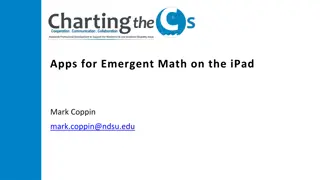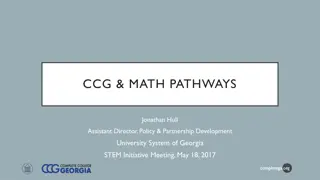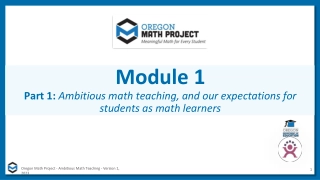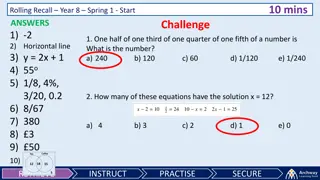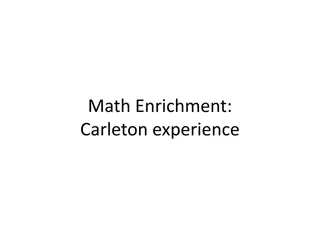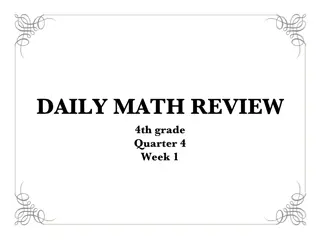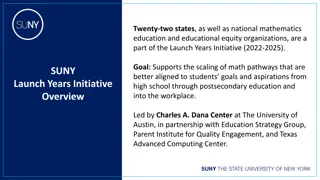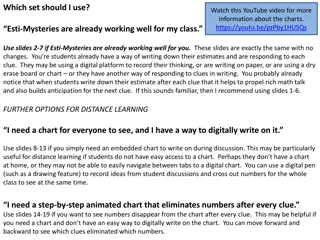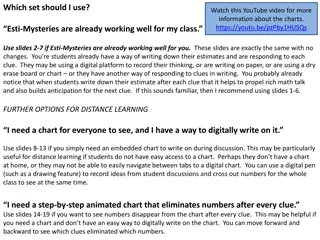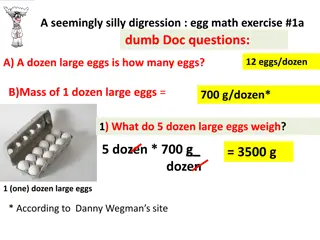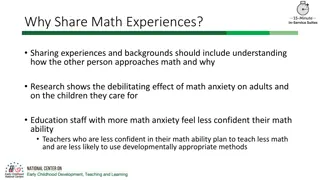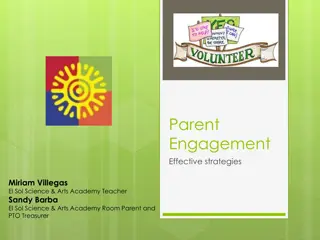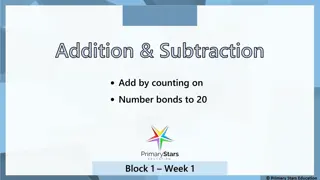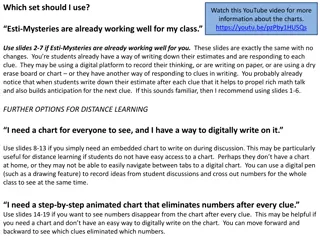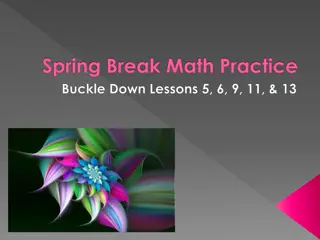Engaging Parents in Supporting Math at Home
This project aims to increase parental engagement in supporting and extending their child's math skills at home. By providing resources and interventions, the goal is to bridge the gap between parents and school, ultimately benefiting the child's learning. Research highlights the importance of addressing parents' past experiences with education to improve engagement. The program includes the use of resources like the "Goody Bag" to enhance parental confidence in supporting math education at home.
Download Presentation

Please find below an Image/Link to download the presentation.
The content on the website is provided AS IS for your information and personal use only. It may not be sold, licensed, or shared on other websites without obtaining consent from the author. Download presentation by click this link. If you encounter any issues during the download, it is possible that the publisher has removed the file from their server.
E N D
Presentation Transcript
MAGNIFICENT MATHS ENGAGING PARENTS IN SUPPORTING/EXTENDING THEIR CHILD S MATHS AT HOME.
OUR CONTEXT AT ABERDEEN SCHOOL FOR THE DEAF oSchool Roll: 15 oPercentage of pupils within targeted group: 56.25% oWe have 45% of the identified pupils (FSM and SIMD 1,2 &3) that are also EAL learners oAll of these children use British Sign Language or Signed Supported English oPEF allocation: 14,400 oCost of this intervention: 400
INTERVENTION RATIONALE: WORKING TOGETHER Parents Pupils Staff
WHAT WE KNEW Parental engagement with homework was low Submission of homework (especially maths) was low Supporting children is challenging when you are unsure of the methods and resources being used at school!
WHAT THE RESEARCH SAYS One of the greatest barriers to engagement can be parents own experiences of education (Harris and Goodall 2007; Harris and Goodall 2008). Shah (2011) likens the experience felt by parents as to that of a child in an unfamiliar environment, even suggesting that such situations can provoke personal feelings that the parent had experienced themselves as a child in school. De Carvalho (2000) takes this argument further and questions the value of parental engagement to those parents who perceive that they have had a sub-standard education themselves. He explains that expecting to engage parents in something they see as being of little value, such as school, is unrealistic. This highlights the importance of showing parents, as well as school staff, that it is parental engagement with children s learning, rather than parental interaction with schools, which holds the greatest chance of benefit for the child. This dialogue can begin to build some of the bridges between parents and schools, which have been destroyed by that previous experience. Goodall and Montgomery (2013)
8% HOW CONFIDENT DID OUR PARENTS FEEL ABOUT SUPPORTING THEIR CHILD AT HOME? 33% 59% HOW MUCH DID PARENTS FEEL THEY KNEW ABOUT THE RESOURCES WE USE IN SCHOOL TO TEACH MATHS? Not at all confident Not too bad No Problems 35% 65% Nothing Not much
NUMBER NOTION RESOURCES The Goody Bag! Activity Booklet Number fan 100 square Multiplication grid Number Tube Strawberry Digits Clocks Number Lines Place Value Tabs Keywords
Benefits of using maths resources at home Benefits of practical activities How consolidating at home can impact learning at school The Why? Explored resources together looking at the maths skills that we can practise/develop Played a variety of games and quick fire activities Highlighted versatility Opportunities for language development How? Discussed opportunities in busy home life Explained new structure of homework tasks When? Targeting parents who didn t attend The Workshop
Higher levels of engagement with maths homework from parents. Pupil s increased confidence in maths both at Aberdeen School for the Deaf and in their mainstream setting. Higher rates of submission for weekly maths homework tasks. Parent s increased confidence levels when supporting their children at home. Parents who didn t attend the session have responded well and started using the resource pack at home. IMPACT
FEEDBACK FROM PARENTS 100% felt they had a better understanding of the resources and language we use to teach maths at school. 100% of the parents that attended felt the session had developed their confidence in supporting/developing/ extending their child s maths at home.
My child really embraced this pack of resources. It has opened up a lot of opportunities for play and questions. His favourite thing to use is the clock! P4 Parent It has helped to engage both of my children, not just the son who attends Aberdeen School for the Deaf. My son in Primary 1 will now come and ask me if we can play the games together. We use the pack every week. My daughter uses it to help with her homework, it s completely changed what we do. I feel really confident now. I m happy to get involved and know how to use the resources and different language to help her. P1 Parent P3 Parent 10 WEEKS LATER
Next Steps Upload video clips of example activities On Video the session for our school website Reflection Invite parents back to show progress More information pre- workshop Use social media to continue to promote use of resources Use social media to engage parents
How effectively do we support parents and carers to participate in, contribute to and understand their child s learning? Share other initiatives you have tried that have led to an increase in parental engagement DISCUSSION QUESTIONS



